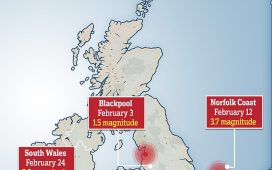[ad_1]
The immune response needed to protect people against reinfection with the coronavirus will be explored in a new human challenge trial, researchers have revealed.
Human challenge trials involve deliberately exposing healthy people to a disease-causing organism in a carefully controlled manner, and have proved valuable in understanding and tackling myriad conditions from malaria to tuberculosis and gonorrhoea.
The first human challenge trials for Covid began this year, with the study – a partnership led by researchers at Imperial College London among others – initially looking at the smallest amount of virus needed to cause infection among people who have not had Covid before.
Now researchers at the University of Oxford have announced that they have gained research ethics approval for a new human challenge trial involving people who have previously had coronavirus. Recruitment is expected to start in the next couple of weeks.
“The point of this study is to determine what kind of immune response prevents reinfection,” said Helen McShane, a professor of vaccinology at the University of Oxford, and chief investigator on the study.
McShane said the team would measure the levels of various components of participants’ immune response – including T-cells and antibodies – and then track whether participants became reinfected when exposed to the virus.
Participants must be healthy, at low risk from Covid, aged between 18 and 30, and must have been infected with the coronavirus at least three months before joining the trial. As well as having previously had a positive Covid PCR test, they must also have antibodies to Covid. Given the timing criteria, McShane said it was likely most participants would have previously been infected with the original strain of the virus.
The first phase of the trial will initially involve 24 participants split into dose groups of three to eight people who will receive, via the nose, the original strain of coronavirus. The idea is to start with a very low dose and, if necessary, increase the dose – up to a point – between groups.
“Our target is to have 50% of our subjects infected but with no, or only very mild, disease,” said McShane, adding that once the dose required to achieve this is determined it will be administered to 10-40 other participants to confirm the dose.
The second phase of the study – expected to start in the summer – will involve a new group of participants and will study closely their immune response before and after exposure to the virus, as well as the level of virus and symptoms in those who become reinfected.
Should reinfection be confirmed, or symptoms develop, in either phase of the trial, participants will be given a monoclonal antibody treatment.
Participants will be reimbursed just under £5,000 for the full study, as each volunteer will need to quarantine for at least 17 days during the trial, and be followed up for 12 months.
The team says the study could not only reveal what level of the different aspects of immune response are needed to prevent reinfection, but also shed light on the durability of protection, and aid the development of treatments and vaccines.
“If we can determine the level of immune response above which an individual cannot be infected, then that will help us determine whether new vaccines will be effective without necessarily having to test them in phase three efficacy trials,” said McShane.
McShane added that future challenge trials could probe similar questions about protection for individuals exposed to a different variant of the virus to that which caused their first infection.
Prof Danny Altmann of Imperial College London, said he welcomed the trial.
“Human challenge studies can be done safely and ethically to fast-track discoveries in infectious disease and vaccine research,” he said. “Some of the key points that can’t easily come out of other, less controlled studies are the earliest immune correlates of the response to infection.”
[ad_2]
READ SOURCE





